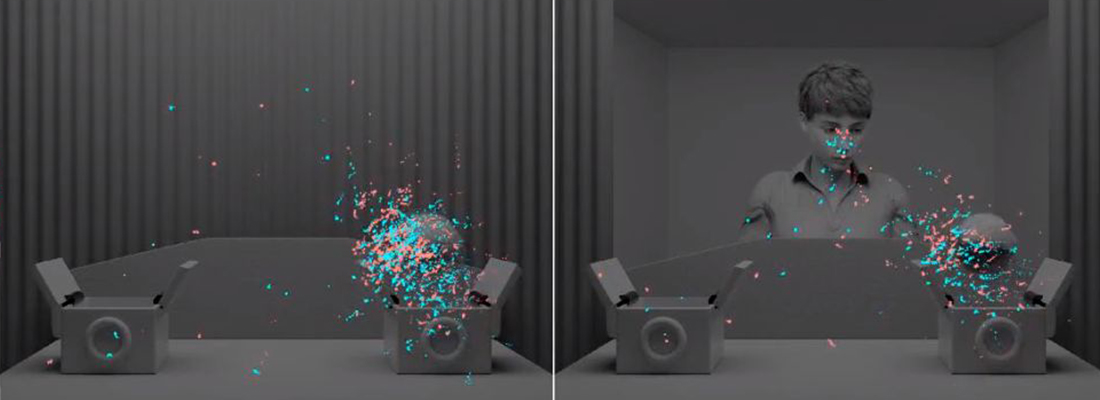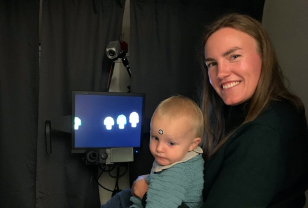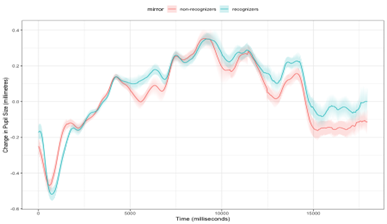Perspective Tracking in 18-month-old infants
In this study we investigated how children’s developing understanding of their own perspective influences their ability to track another person’s perspective, especially when it is in conflict with their own.

50 18-month-old infants watched animated videos in which a person sees a ball jumping into different boxes. In some videos the person does not see that the ball moves to a different box, and in some videos they do. Using eye-tracking, we recorded where the children look during these videos as well as their pupil size.

Previous studies have shown that our pupils grow a little larger when we experience conflict, and we are interested in whether young children will show these changes in pupil size when they have information about the location of the ball that differs from the person in the video.
We chose 18-month-olds because previous studies found that about 50% of children begin to recognize themselves in the mirror. This is related to their developing sense of self, or their understanding of their own perspective. For the present study, we investigated whether children’s looking behaviour and pupil dilation patterns differed depending on whether they recognized themselves in the mirror or not.
Half of the infants recognized themselves in the mirror (mirror recognizers), and half of them did not (mirror non-recognizers). We did not find any differences in the looking patterns in these two groups and both groups tended to look at the box where they themselves knew where the ball was located, and not the box where the person in the video should think the ball is.
Although the looking patterns were the same, we found some interesting differences in the pupil dilation patterns. Above is a graph of the change in pupil size as children were watching the video:

The blue line shows data from mirror recognizers and the red line is data from mirror non-recognizers. We can see that at the end of the video, at around 15s, the pupil size in mirror recognizers begins to increase while it decreases in the other group. We think the shows that a developing sense of self may lead to greater cognitive processing when one is prompted to think about another’s perspective that is in conflict with one’s own.
This findings from this study were published at the end of 2022 and you can read the paper here.
 |
|
|
PhD, Professor
victoria.southgate@psy.ku.dk
|
 |
 |
|
 |
About the study
Perspective Tracking in 18-month-old infants began in May 2020 and was completed in August 2022.
The study was supported by the European Research Council (ERC).
Contact
Emanuela Yeung
Postdoc
Centre for Early Childhood Cognition
eyeung@psy.ku.dk
